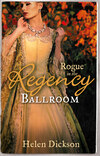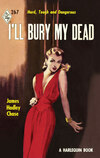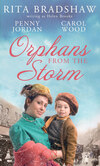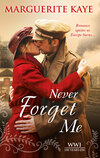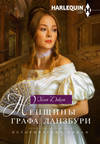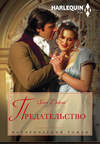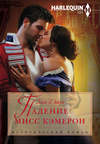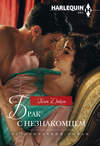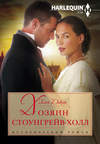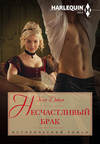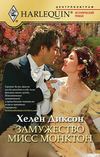Читать книгу: «Rogue in the Regency Ballroom»

About the Author
HELEN DICKSON was born and still lives in south Yorkshire, with her husband on a busy arable farm, where she combines writing with keeping a chaotic farmhouse. An incurable romantic, she writes for pleasure, owing much of her inspiration to the beauty of the surrounding countryside. She enjoys reading and music. History has always captivated her and she likes travel and visiting ancient buildings.
Rogue
in the
Regency
Ballroom
Rogue’s Widow, Gentleman’s Wife
A Scoundrel of Consequence
Helen Dickson
MILLS & BOON
Before you start reading, why not sign up?
Thank you for downloading this Mills & Boon book. If you want to hear about exclusive discounts, special offers and competitions, sign up to our email newsletter today!
Or simply visit
Mills & Boon emails are completely free to receive and you can unsubscribe at any time via the link in any email we send you.
In The Regency Ballroom Collection
Scandal in the Regency Ballroom April 2013
Innocent in the Regency Ballroom May 2013
Wicked in the Regency Ballroom June 2013
Cinderella in the Regency Ballroom July 2013
Rogue in the Regency Ballroom August 2013
Debutante in the Regency Ballroom September 2013
Rumours in the Regency Ballroom October 2013
Scoundrel in the Regency Ballroom November 2013
Mistress in the Regency Ballroom December 2013
Courtship in the Regency Ballroom January 2014
Rake in the Regency Ballroom February 2014
Secrets in the Regency Ballroom March 2014
Rogue’s Widow, Gentleman’s Wife
Chapter One
Charleston, South Carolina—1880
A long column of sullen-looking convicts—black and white—moved slowly and painfully down the sun-baked street. Ragged and barefooted, they were fettered together like beasts of burden, their heavy iron ankle chains rubbing pitilessly against their skin, tearing and making it bleed. The men guarding them walked alongside, thick canes in their hands, urging them along with curses and threats. Others rode in front and behind, the harnesses jingling on their horses.
The traffic was heavy, the pavements swarming with people of all colours, passing through every shade of brown to black. Their clothes were gaily coloured, and the soft blur of the southern speech fell pleasantly on a stranger’s ears.
Having become stuck in a mass of horses and traps and fine carriages of the well-to-do to let the convicts shuffle past, Amanda sat beside Nan, her maid. With the sun beating down on them the heat was intense, the humidity making it feel even hotter. Amos, Aunt Lucy’s faithful old retainer, was sitting with an air of dignified authority, loosely holding the reins. He was content to wait it out, but the horses shifted restlessly, eager to be on the move.
Beneath her pretty parasol, which shielded her from the harsh glare, Amanda, too, was restless and impatient to continue, her frustration and temper simmering in the increasing heat. She spared no thought to the wretched prisoners. Her whole focus was on her low spirits. What she did care about was the fact that she was to leave Charleston five days hence for her home in England.
Feeling uncomfortable in the heat, Nan swatted an irritating fly from her cheek. Tipping her bonnet back, she wiped her damp forehead. ‘This heat is getting me down. God willing we won’t have to endure it much longer and we’ll soon be back in England. Never again will you hear me complain about the cold and rain.’
‘Trust you to say that, Nan,’ Amanda exclaimed impatiently. Coming to America had been a whole new experience for her, and, without her father’s domineering presence, she had been enjoying herself far too much to think of leaving just yet. But circumstances had turned against her. ‘Oh, why did Aunt Lucy have to die—just when life held such promise. It has all turned out so different from what I had planned. I have failed dismally, Nan.’
Despite her own discomfort, Nan smiled across at her young mistress, thinking how pretty she looked, how cool and elegant in her sky-blue-gingham sprigged gown and a wide-brimmed straw bonnet that hid much of her wealth of burgundy-coloured hair. And yet despite Amanda’s sweet and charming look, she was, in reality, stubborn, touchy, intransigent and independent, rebellious of all discipline, truculent when denied her own way, and with passions that were easily stirred, like her father, with nothing of her cousin Charlotte’s mild-tempered, forbearing nature. In Nan’s opinion, who was ten years her mistress’s senior, she called for firm handling. She had been indulged by an adoring father and allowed to go her own way for too long.
‘It isn’t your fault. You weren’t to know your aunt would die and your father order you back home.’
A touch of anger came to add to the bitterness of Amanda’s disappointment. She knew, as she had always known, that her father, having made a fortune out of his various business enterprises, had wanted to move in higher circles of society, and that she was the key to help him attain this.
‘Since I have failed to find a suitable husband, he will marry me off without delay the minute I get off the ship. He’s eager for me to marry and give him an heir, and he’s got someone in mind, I know it—some titled old man whose name and position will be Father’s entry into the world of blue-blooded aristocrats.’
‘Come now. Stop tormenting yourself. If that is so, then I am sure the man he has chosen for you will not give you any cause for reproach. Your father loves you and will take your wishes into account.’
‘Father’s not like that. Oh, if only I could find someone I wanted to marry, Nan. Aunt Lucy was sympathetic to my plight. I’ve lost count of the eligible men she’s paraded before me—but there wasn’t one I wanted to spend the rest of my life with. I’m beginning to think there’s something wrong with me.’
Nan sighed. Having had this conversation with Amanda many times over the past weeks, she was beginning to tire of it. ‘Then maybe you should marry a man who is senile, who won’t last the year. Your father would have to respect a year of mourning and by then you would be twenty-one and independent of him.’
Amanda looked at her sharply, calculating. Now why hadn’t she thought of that? Mulling over what Nan had said with sudden interest, she paid no attention to the carriage edging alongside until its occupant spoke.
‘Why, my dear Miss O’Connell. I am so happy to see you. I was terribly sorry to hear about dear Lucy—quite a surprise, I must say. I’m only sorry that I couldn’t attend the funeral, but my husband and I have been out of town for a while, visiting our daughter in Wilmington. And what of you, dear?’
Amanda turned to look at Mrs Hewitt, an elderly, statuesque, full-bosomed lady. An acquaintance of her Aunt Lucy’s, despite being something of a busybody, she was a likeable, well-meaning woman.
‘I am well, thank you, Mrs Hewitt. Aunt Lucy’s death was all rather sudden. She took a turn for the worst following a chill and sadly never recovered.’
‘Well, what a good thing she had you to take care of her. At last she’ll be with her beloved Edward. I imagine there is much to do at the house?’
‘Cousin Charlotte and her husband stayed on at Magnolia Grove after the funeral to take charge of everything.’
‘And you? Are you to remain in Charleston?’
‘I’m afraid not. I’m going back to England in a few days’ time—although I shall be sorry to leave.’ She shifted her eyes to look at the convicts, closer to them now. She was appalled at the pallid, unshaven faces. The heat and moistness of their unwashed bodies released a sickly stench.
Mrs Hewitt followed her gaze, raising her perfumed handkerchief to her nose to blot out the vile odours. ‘Look at them—gallows meat, the lot of them. Probably been working at the docks—been some kind of accident as a ship was being unloaded, apparently—some of the cargo tipped into the sea and every available man was needed to retrieve it. I see one of the prisoners is that vile man Claybourne—the one in the middle—the one responsible for that ghastly crime.’
Wishing the prisoners would walk faster so that they could move on, Amanda looked at the man Mrs Hewitt pointed out with scant interest, and then with a growing curiosity. She hardly noticed anyone else—her attention was entirely focused on him. With his mouth set in a thin, hard line, he walked with his head held high, with a kind of arrogance, which, in the midst of so much wretchedness that clung to his fellow prisoners, had its own kind of greatness. She could see that his clothes were of fine quality, but badly stained. The rags of his once-white shirt gave little protection to his broad shoulders and bronzed skin, which showed through in many places, but he did not seem conscious of the hot sun. His overwhelming masculinity stirred some deeply rooted feminine instinct that she acknowledged.
‘What did he do?’
Mrs Hewitt turned to look at her, plying her fan with verve. ‘Why, don’t you remember? He’s the man who killed poor Carmen Rider.’
Amanda recalled the scandal that had torn through Charleston. The town had reeled with horrified fascination of the murder. Carmen was a thirty-year-old wealthy widow, a Spanish woman, who had been brutally murdered in her home two months or so ago. It was her maid who had found her. The room had been ransacked and she had died from vicious wounds, having clearly put up a fierce struggle against her attacker.
‘I was in Savannah with Aunt Lucy, visiting her sister-in-law at the time, so I do not know the details of the case.’ Besides, she thought, she had been enjoying the delightful company of some of the charming bucks belonging to Savannah’s elite too much to dwell on a depressing murder case taking place in Charleston. ‘What do you know about Mr Claybourne, Mrs Hewitt?’
‘Not much, only that he lived out of town—in a wooden cabin in the cypress swamp—by the river. Bit of a loner, if you ask me. At one time he spent some time in the Smoky Mountains—with the Indians, some say, where he improved his skill with horses. Carmen hired him to break in some of her mounts. Since her husband died she had had a host of admirers but she quite shamelessly threw herself at Mr Claybourne—proclaiming her love for the man to anyone who would care to listen. From what I’ve heard he was not as enamoured of her as she was of him, but he stayed anyway. Whether or not they had a full-blown affair is open to speculation.’
‘He might have fared better had he stayed in the swamp with the alligators,’ Amanda murmured. ‘I seem to recall there are Claybournes in England—aristocrats, I believe.’
‘As to that I wouldn’t know, but I shouldn’t think there is any connection. I cannot see a peer of the realm coming to America to work with horses.’
‘No, I suppose not. Why do you think he killed her?’
‘It was known that they quarrelled and he left her the day before she was killed. When she was found, it was believed that he was the murderer—her brother was certain of it, though he’s a rogue if ever there was. There are those who know Mr Claybourne that say his behaviour was most out of character, that he is a man of considerable intelligence, and that a man of that stamp does not commit such acts of madness without good reason. But everything seemed to point to him. He was the prime suspect and arrested and taken to gaol.’
‘Was there no one else who could have killed her?’
‘Opinion was unanimous that he was the only one with a motive strong enough, and in a final quarrel he murdered her. Owing to the seriousness of the case and the social prominence of Carmen—her husband was a well-known and respected attorney in Charleston, you know—the jury found him guilty and he was sentenced to hang.’
‘And what did Mr Claybourne have to say for himself?’
‘All the time he stuck to his statement that he was nowhere near her home at the time—and there were many who believed him innocent but none who could substantiate his alibi. The servants gave accounts of constant discord between their mistress and Mr Claybourne and testified that a man of his description let himself into the house and went to Carmen’s room on the night she was killed.’
As Mr Claybourne passed in front of the carriage, Amanda was aware of the tension and nervousness in herself. He was close enough now for her to see his face more clearly. Beneath his facial growth she could see he was attractive. His jaw was roughly carved, his forehead was high, his eyebrows heavy, his cheeks lean and his hair, though dull and lank, was thick and dark brown.
As if he felt her scrutiny, he turned and met her eyes. She knew instinctively that he was just as aware of her as she was of him. Her heart skipped a beat as she met those eyes steadily, and she saw amber flames ignite within their depths.
His eyes assessed her frankly, taking in her cool, quiet beauty. She was vividly conscious of him, and she felt the unfamiliar rush of blood humming through her veins, which she had never experienced before. Instantly she felt resentful towards him. He had made too much of an impact on her, and she was afraid that if he looked at her much longer he would read her thoughts with those clever eyes of his.
And then he was gone, oblivious to the cane which at that instant the guard thudded on to his back. Amanda watched the convicts become swallowed up by the crowd, her eyes fixed on the tall man until the last.
‘When will the sentence be carried out?’ she asked Mrs Hewitt.
‘In about a week.’
When the congestion began to clear, and after bidding Mrs Hewitt farewell, all the way to Magnolia Grove Amanda turned her thoughts once more to her predicament, trying to find a way to circumvent her father. There must be some way to escape marrying a man of his choosing, there must be something she could do. And then the words of Nan came back to her—that perhaps she should marry a senile old man who wouldn’t last the year.
Nan was right—but instead of a man in his dotage, why not a man who was to end his life on the gallows one week hence, a man with the name of Claybourne who could well be a relative of the aristocratic Claybournes in England? Then she could go home and truthfully tell her father she was a widow—whilst keeping the manner of her husband’s death to herself—and he would have no choice but to respect a year of mourning. By then she would be twenty-one and independent of him.
But suppose he wouldn’t marry her? Suppose, despite all her promises of enough food and comforts to make his last days bearable, he still refused to marry her? Then what would she do?
Amanda clenched her hands, her eyes taking on a determined gleam. I’ll make him marry me. I’ll make him want to marry me, she vowed, with the goad of desperation. Headstrong and tempestuous, she was so accustomed to having her own way that she did not pause to consider that any other way might exist.
She wasn’t fool enough to think it would be easy. She would have to evaluate various approaches. Somehow she would have to prevent Mr Quinn from finding out what she was about to do until it was too late for him to do anything about it. He had been in her father’s employ for many years, and when she had come to America her father had insisted that Mr Quinn act as her guardian, giving him the authorisation to vet the suitability of the man she might want to marry—her father being of the opinion that, as a mere girl, how could she possibly tell a true gentleman from a rogue? Her only hope was Amos. Amos was an important man at Magnolia Grove; he knew everything there was to know about Charleston, and he could be relied on for his discretion.
Sheltered by massive oaks, palmetto and shimmering beech trees, Magnolia Grove stood on the outskirts of Charleston, basking in the sun like a jewel. It was a house of considerable proportions. Shaded arches, brightened by cascades of blood-purple bougainvillea, yellow cassia and the scarlet cry of frangipani, supported a first-floor gallery that stretched the full length of the house. It was surrounded by an array of formal gardens meticulously sculpted, with statues that stood in their own beds of flowers. The house was spacious and light inside, the furnishings simple yet tasteful.
Aunt Lucy’s husband, Edward Cummings, who had died shortly after the Civil War, had been a brilliant businessman. He had made his fortune trading rum, sugar, rice and cotton. A financier of blockade runners during the Civil War, he was one of the few people in Charleston who had not gone under and had kept his grand town house, although following the devastation of the war and with the emancipation of the slaves, he had been forced to sell his cotton plantation on the Cooper River.
Amanda had soon become accustomed to the rhythm of life at Magnolia Grove and the bustle of servants. Having grown extremely fond of Aunt Lucy in the twelve months she had been in Charleston, her sudden death had affected Amanda profoundly and she missed her terribly. Charlotte, Aunt Lucy’s only child, and her husband, Mark, had taken care of all the formalities. Unable to bear the thought of selling the old family home, Charlotte and her husband had decided to leave Atlanta in Georgia and make Magnolia Grove their own.
On entering the house, Amanda found Charlotte arranging fragrant white roses in a glass vase on a circular rosewood table in the centre of the hall. She turned to look at Amanda and smiled.
‘Ah, you’re back! How was your visit to the shops?’
‘Fruitful,’ Amanda replied, indicating the packages Nan was carrying, ‘though terribly hot. Can I help?’ she asked, removing her bonnet and leaving Nan to take her burden up to her room.
‘Thank you, but I’m almost done.’ Adding the final rose into her arrangement, Charlotte stood back to survey her handiwork, a wistful expression on her face. ‘These roses were Mother’s favourites. She grew them herself—had them sent out from England.’
‘I know,’ Amanda said quietly, remembering how Aunt Lucy had patiently shown her how to prune them. ‘I’m sorry she’s no longer with us. The house isn’t the same without her.’
‘I take comfort knowing she’s with Father now, that she will be content. She always believed in heaven and an eternal life, so I have no doubt that that is where she will be.’ Charlotte put out a hand and touched Amanda’s arm affectionately. ‘Mother grew very fond of you, Amanda. She was so happy when you came to stay with her.’
Charlotte, a quiet, tolerant being, was a petite, rosy-cheeked brunette and eight years older than Amanda. Her grief, Amanda thought, made her look pretty. She had the sort of kind, caring face that didn’t need smiles to enhance it.
‘I wish you didn’t have to go back to England,’ Charlotte said, ‘but I know you must. Still, you can always come again. I do hope so.’
‘If it was anyone else other than Father telling me I must go home, I wouldn’t leave—and I’m so glad you’ve decided to live here. It wouldn’t seem right to part with this lovely old house, for strangers to move in. What about Mark? Will he miss Atlanta?’
‘He’s looking forward to it, and already seeking premises to set up his law practice. He was born in Charleston. He’s always wanted to come back.’
‘I can understand why. I’ve grown terribly fond of Charleston myself.’
‘But you miss your father.’
‘Of course I do. I love him dearly and I’m so proud of what he’s accomplished throughout his life—not many men could have achieved what he has unaided—but how I wish he wouldn’t press me so hard to wed. Why is it that men should think that marriage should be every woman’s goal in life?’
‘When you return to England, perhaps he’ll be so happy to have you back in the fold and realise just how much he’s missed you that it will no longer seem important to him.’
‘Oh, no, Charlotte. In this his mind is made up. In the matter of my marrying he will have his way. He grows impatient. By the time I get home he will have endeavoured to find a husband for me. In fact, I think it’s safe to say he will have gone to extraordinary lengths to accomplish that.’
‘It could have been different, you know,’ Charlotte said gently and without reproach. ‘As soon as Mama launched you on to South Carolina’s social scene you became an instant success, with offers for your hand made in record numbers.’
This was true; no matter what event Amanda attended, she was always the belle of the ball. Immediately she was surrounded by a crowd of besotted swains and in no time at all had them eating out of her hand. Impulsive, witty and intelligent—and with a zest for life that left Charlotte breathless—Amanda was desired by all and, with her pink cheeks and lush deep-red hair, she glowed like a jewel against white silk. But her popularity wasn’t due primarily to her loveliness and wit, or to the fact that she was heiress to a huge fortune; it was because she kept so much of herself hidden that no one really knew the true Amanda. She possessed an aura of pride that warned a man not to come too close. She had become an exciting enigma that intrigued everyone who met her.
‘If you had chosen one of them, and the formidable Mr Quinn approved, then he would have been returning to England alone.’
Amanda sighed, bending over the table to smell the roses. ‘It’s my own fault, I know. Most of the men of marriageable age I found amusing and charming enough, but there hasn’t been one that inspired anything stronger than that—and certainly not one I would choose to spend the rest of my life with. Besides, I know the true reason why they seek my company. The contact isn’t friendship, so it has to be that they are drawn by the smell of power and money.’
She became despondent. ‘I suppose, if I’m honest, I don’t want to get married to anyone, because all the pleasures I enjoy so much will be denied me with a husband in tow. Since coming to Charleston I’ve had a wonderful time. Everyone has been so friendly, hospitable and courteous. I’ve been invited everywhere—to parties and picnics. I don’t want it to end, Charlotte. Where is he, by the way?’ she asked, straightening up and doing a quick sweep of the hall, half-expecting her formidable guardian to materialise from one of the rooms leading off.
‘Who—Mr Quinn? I have no idea. He comes and goes as he pleases. Of late he’s been noticeably quiet—as if something weighs heavy on his mind. In fact, he really is a man of mystery and many secrets. I do wonder what he finds to do half the time. Come, we’ll go and sit on the porch. It’s the one place that offers a cool and shady place to sit and chat. I’ll just go and find one of the servants and have them bring us some lemonade.’
‘Let me go—there’s something I wish to speak to Amos about.’ For a moment Amanda felt regret that she was about to deceive her cousin, but it was gone as soon as she saw Aunt Lucy’s old retainer crossing the yard to the stables. Amos had been a part of the Cummings family for years, and with a great sense of pride and full of his own importance, he lorded it over all the other servants and could galvanise the most shiftless into action. Aunt Lucy had come to depend on him a great deal since the death of her husband, and she had always said how he was her mainstay, and that his loyalty was something money couldn’t buy.
When Amanda had arrived at Magnolia Grove, Amos had fallen under her spell the first time he had received the full impact of her dimpled smile, and from that moment on had become her most devoted servant.
Amos paused in his stride when Amanda called his name, waiting with proper respect for her to reach him as she ran across the yard, holding her skirts off the ground, her tiny feet moving as though they had wings.
The friendliness Amos had shown Amanda since she had come to Magnolia Grove gave her confidence. ‘Amos, I know I can trust you and that you’ll do almost anything I ask you to.’
Amos looked at her with ardent curiosity and deep suspicion; despite his devotion, he was under no illusions about her. And when she looked at him as she did now—demure and sweet-talking, knowing such methods always worked with him when she was planning some new escapade—he found himself saying cautiously, ‘Yo’ can always depend’ pon my complete, unquestioning loyalty, yo’ sure know that, Miss Amanda.’
‘What I am about to ask of you I don’t want to go any further. You do understand that, don’t you, Amos?’
‘Very well, miss. Ah woan breathe a word,’ he said in hushed tones, entering into the conspiracy, unaware of where that conspiracy was to lead him.
Amanda paused to steal a furtive glance about the empty yard; then, moving closer, she looked at him and confided, ‘Amos, is it difficult obtaining admittance to the City Goal?’
Stepping back, he stared at her as though her senses had deserted her. There was a gleam of such intense excitement in the young miss’s eyes that it aroused sudden distrust in Amos. ‘The City Goal? But why’d yo’ want to go there? God fo’saken place—sho is, and no respectable young lady should be seen near it.’
‘Never mind that. Please, please say you’ll help me, Amos,’ she pleaded, determined to get her own way in this.
‘Not in a ’undred years, I woan,’ he stated adamantly, shaking his grizzled head, seeing the scowling expression on her face pass into a smile that would have charmed a fox out of its hole, a smile she knew was difficult for him to resist. ‘Ah ain’t never been in that place, an don’ think yo’ can get round me by lookin’ like that.’
‘Now, Amos, don’t be mean,’ she wheedled.
‘What fo’ you want to go there anyhow?’ He looked at her piercingly. ‘This don’ sound right to me—an’ are you not tellin’ Miss Charlotte?’
‘No. Charlotte mustn’t know—at least, not just yet. Please, Amos. There’s a man I want to see as soon as possible—tomorrow if it can be arranged. I’ve got to see him. I’ve simply got to, and I can’t do it by myself. If you won’t help me, then I will find some other way. It is extremely important to me. Please, please say you will,’ she entreated, feigning helplessness.
Amos shifted from one foot to the other like a restive horse. ‘What fo’ are yo’ fixin’ to see this man—a gentlemun, I hope?’
‘Of course he is, and what I want to see him about is my business,’ Amanda replied indignantly, growing impatient. ‘Well? Are you going to help me or not?’
‘Well … yes, miss—but I don’ approve. I want to know what you’re up to—so don’ you go askin’ no one else.’
His capitulation brought a sigh of relief from Amanda. ‘Thank goodness. I knew I could rely on you.’
‘Only if I go in wid you. Dat prison’s full o’ dangerous varmints an’ ’tis no place for yo’ to be alone. What would Miss Charlotte say if she finds out? Flay me alive she would.’
‘No, she won’t and you know it. You can drive me there but I must go in by myself. I will not have you glowering at me while I converse with the man I want to see. Are the prisoners allowed visitors?’
‘Most of ’em.’
‘If the person I want to speak to is not, can any of the gaolers be bribed?’
Amos’s black brow wrinkled in thoughtful lines. ‘One of the turnkeys is a man called Hennesey—though he’s a hard, mean character, he’s also greedy and gold sings right sweet in his ears. But it shouldn’t come to that.’
‘Good. That’s what I hoped you’d say.’ Amanda faced him squarely, the light of decision in her eyes. ‘The man I want to see is Mr Claybourne, the horse breaker found guilty of murdering Carmen Rider.’ Sensing fresh disapproval, she said quickly, ‘I am sure a resourceful man of your position could arrange it for me, Amos. Will you go and see Mr Hennesey and ask him if I can see Mr Claybourne alone? For such considerations he will be well rewarded for his trouble.’
In no way did Amos approve of what she was asking him to do, but he nodded nevertheless, knowing she was capable of going to the prison alone if she took it into her head. ‘Ah’ll do my best.’
‘Thank you. Oh, and, Amos, not a word to Mr Quinn or cousin Charlotte. Remember.’
And so it was arranged. Amos had a word with her before she went in to dinner, quietly informing her that Mr Hennesey would expect her at the City Gaol the following morning at ten o’clock.
The next day there was no sign that Amanda had spent a sleepless night pacing her room with single-mindedness of purpose. Her sights were centred on one goal, her mind bolstering the courage to carry out the wild plan she had conceived with Amos’s help. She had everything to gain and nothing to lose—and neither had Mr Claybourne. Her heart and jaw were set with determination, her mind made up. Thank God she wasn’t afraid.
However, certain practicalities had to be taken into consideration. She must wear something Mr Claybourne would be unable to ignore, and yet something that would not attract too much attention. Spending several minutes in a frenzy of worry and indecision, she finally decided on a rather modest saffron silk gown and matching bonnet with a veil that would conceal her features until she was in his presence. Hopefully she would succeed in entering and leaving the prison without anyone being any the wiser as to her identity.
Travelling into town, Amanda paid little attention to her surroundings. Her mind was focused one hundred percent on her meeting with Mr Claybourne.


